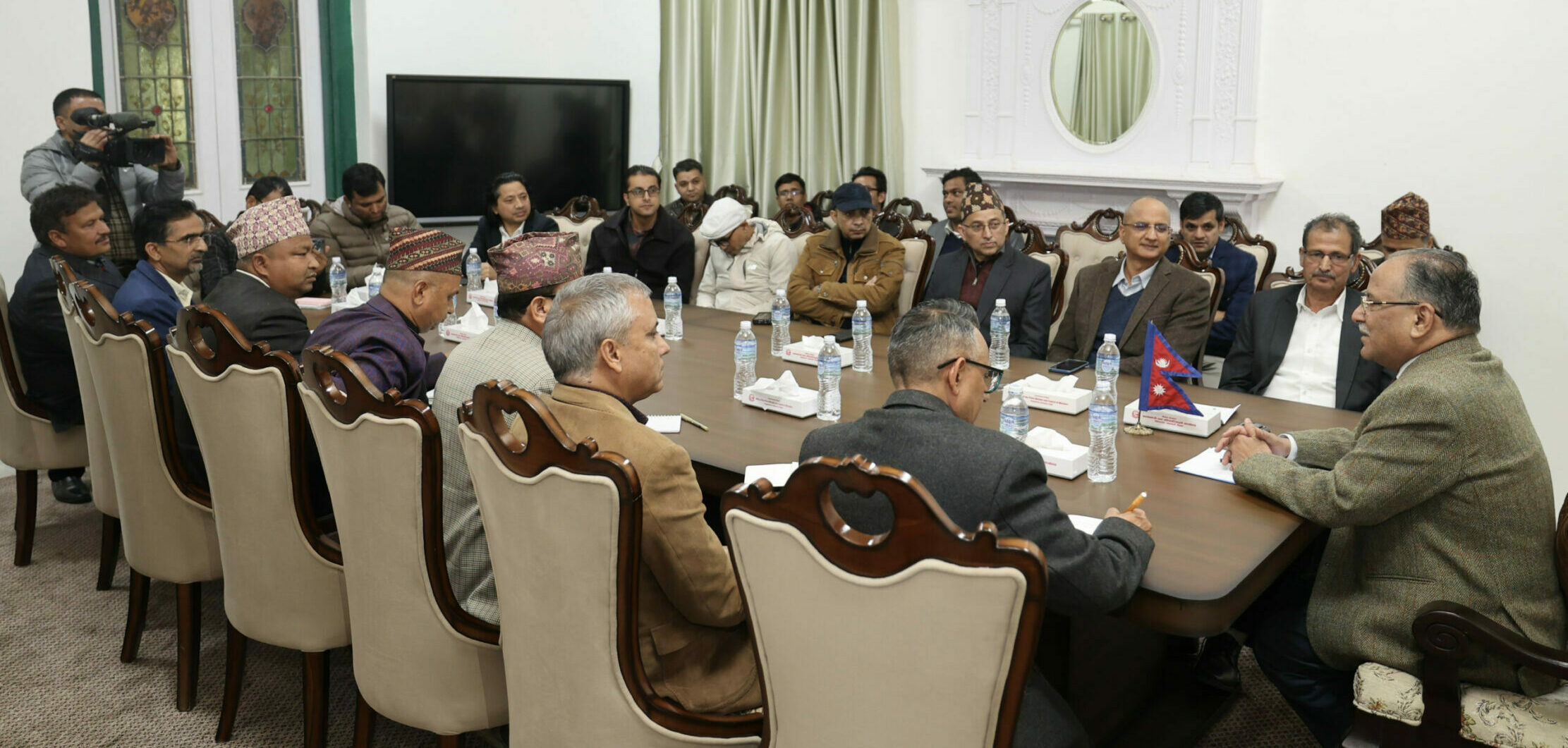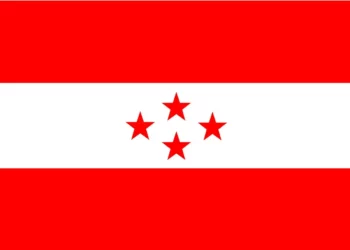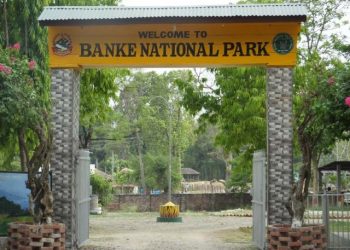KATHMANDU: Prime Minister (PM) Pushpa Kamal Dahal Prachanda firmly asserted that Nepal, with its balanced constitution, remains committed to secularism despite external voices advocating for a shift towards a Hindu state.
During an interaction with journalists at Singh Darbar on Monday, Prime Minister Dahal addressed concerns raised not only within the country but also from outside, emphasizing that Nepal is a multi-ethnic, multi-religious, and multi-cultural nation.
Without explicitly naming India, Prime Minister Dahal alluded to leaders of the BJP, stating, “How can countries with 80 percent Hindus not adopt Hindu Rashtra?
“We are a small country; worry about secularism in your constitution and do not overly concern yourselves with us,” he stated.
Rejecting pressure from Indian leaders advocating for a Hindu nation in Nepal, Prime Minister Dahal underscored the balance in Nepal’s constitution.
He explained that during the constitution-making process, discussions were extensive, focusing on preserving heritage and traditions while accommodating the diverse multi-castes and multi-religions present in the country.
Addressing comments by Nepali Congress President Sher Bahadur Deuba about the possibility of discussing secularism, Prime Minister Dahal clarified that the decision to uphold secularism had been finalized during a recent meeting of the Nepali Congress.
He highlighted the significance of secularism in ensuring the success of federalism and the stability of the republic, emphasizing that it safeguards religious freedom and “Sanatan Dharma” culture.
In response to concerns about monarchists exploiting gaps in public understanding of the constitution, the Prime Minister disclosed plans for coalition parties to unite in educating the public.
He urged joint efforts to counteract potential challenges and affirmed that all political parties, including CPN-UML Chairman KP Sharma Oli, support the constitutional commitment to secularism.
Prime Minister Dahal concluded by asserting that protecting religious freedom and “Sanatan Dharma” culture remains a shared objective among political parties.
The coalition’s preparation to engage with the public reflects a commitment to addressing concerns and maintaining stability in the country.









Comment